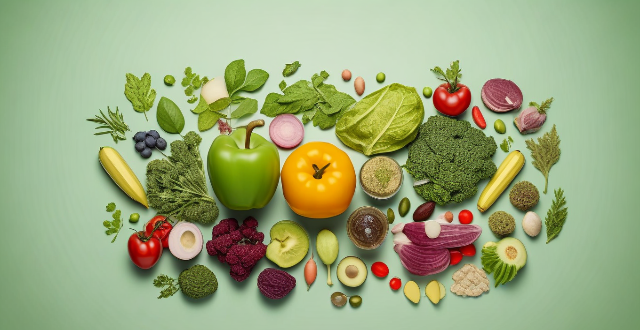The article discusses the pros and cons of organic versus conventionally grown foods, including factors such as pesticide use, nutrient content, cost, availability, and environmental impact. While organic foods offer benefits in terms of reduced exposure to synthetic chemicals and potentially higher nutrient content, they also come with higher costs and limited availability. Conventionally grown foods are often more affordable and widely available but may contain lower levels of certain nutrients and pose potential risks from exposure to synthetic chemicals. The choice between organic and conventional foods ultimately depends on individual preferences and priorities when it comes to health, affordability, and environmental impact.

Are Organic Foods Safer than Conventionally Grown Foods?
Introduction
Organic foods have become increasingly popular in recent years, with many people choosing to buy organic products for health and environmental reasons. However, there is still debate over whether organic foods are safer than conventionally grown foods. In this article, we will explore the pros and cons of both types of food and try to answer the question: are organic foods safer than conventionally grown foods?
Pros of Organic Foods
No Pesticides or Chemicals Used
One of the main advantages of organic foods is that they are grown without the use of synthetic pesticides or chemicals. This means that there is less risk of harmful chemicals being ingested by humans who consume these foods. Additionally, organic farming practices often prioritize soil health and biodiversity, which can lead to healthier crops overall.
Higher Nutrient Content
Some studies have suggested that organic foods may contain higher levels of certain nutrients, such as antioxidants, than conventionally grown foods. This could be due to the fact that organic farming methods tend to focus on building healthy soil, which can lead to nutrient-rich crops.
Better for the Environment
Organic farming practices often involve more sustainable methods, such as crop rotation and natural pest control, which can be better for the environment in the long run. By reducing the use of synthetic pesticides and fertilizers, organic farming can help protect ecosystems and reduce pollution.
Cons of Organic Foods
Higher Cost
One potential downside of organic foods is that they tend to be more expensive than conventionally grown foods. This can make it difficult for some people to afford a fully organic diet, especially if they have limited financial resources.
Limited Availability
Organic foods may not always be readily available in all areas, especially in rural or remote locations. This can make it challenging for people who want to eat organic but live in areas where these products are not easily accessible.
Potential for Contamination
While organic foods are generally grown without synthetic pesticides or chemicals, there is still a risk of contamination from other sources, such as bacteria or mold. It is important for consumers to carefully wash and prepare all types of produce, regardless of whether it is organic or conventionally grown.
Pros of Conventional Foods
Lower Cost
Conventionally grown foods are often less expensive than organic alternatives, making them more accessible to a wider range of consumers. This can be especially important for families on tight budgets who still want to provide healthy meals for their loved ones.
Wide Availability
Conventional foods are typically more widely available than organic options, especially in larger grocery stores and supermarkets. This makes it easier for people to find the foods they need, regardless of where they live.
Longer Shelf Life
Conventional farming practices often involve using preservatives and other additives to extend the shelf life of foods. This can make it easier for consumers to store and transport their groceries without worry about spoilage.
Cons of Conventional Foods
Use of Pesticides and Chemicals
One major concern with conventionally grown foods is the use of synthetic pesticides and chemicals during the growing process. These substances can potentially harm both human health and the environment if not used properly.
Lower Nutrient Content
Some studies have suggested that conventionally grown foods may have lower levels of certain nutrients compared to organic alternatives. This could be due to differences in soil quality and farming practices between the two methods.
Negative Environmental Impact
Conventional farming practices often involve using large amounts of synthetic fertilizers and pesticides, which can have negative impacts on local ecosystems and water quality. Additionally, monoculture farming (growing only one type of crop in a field) can lead to soil depletion and reduced biodiversity over time.
Conclusion
So, are organic foods safer than conventionally grown foods? The answer is not entirely clear-cut. While organic foods offer several benefits in terms of reduced exposure to synthetic chemicals and potentially higher nutrient content, they also come with higher costs and limited availability. On the other hand, conventionally grown foods are often more affordable and widely available but may contain lower levels of certain nutrients and pose potential risks from exposure to synthetic chemicals. Ultimately, the choice between organic and conventional foods depends on individual preferences and priorities when it comes to health, affordability, and environmental impact.